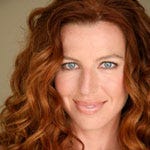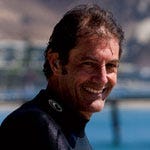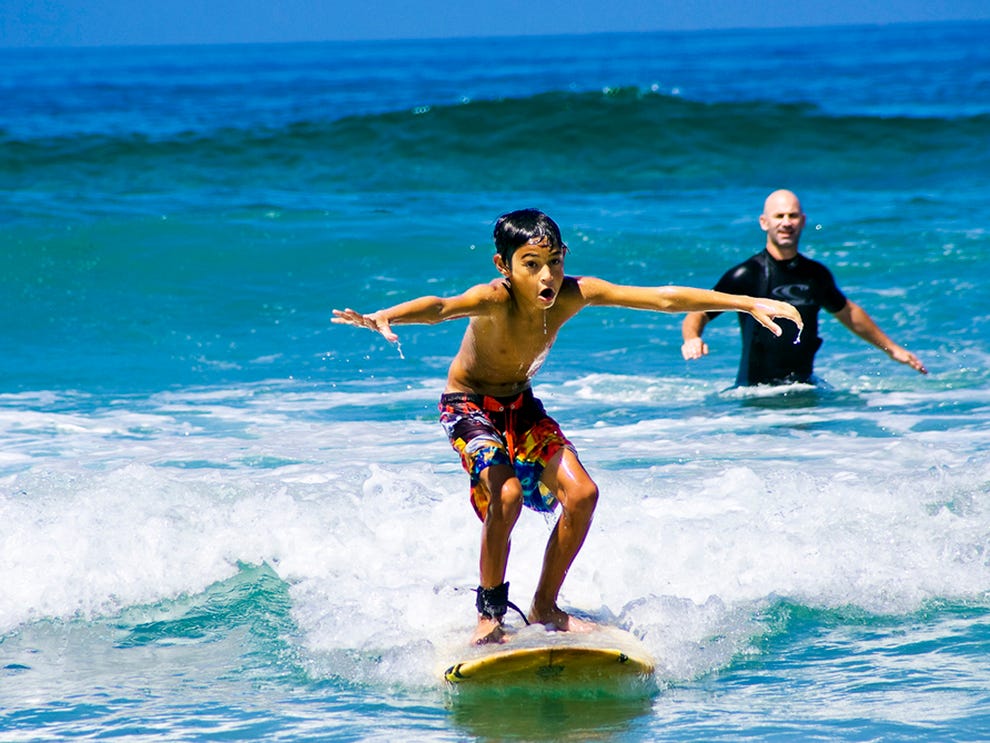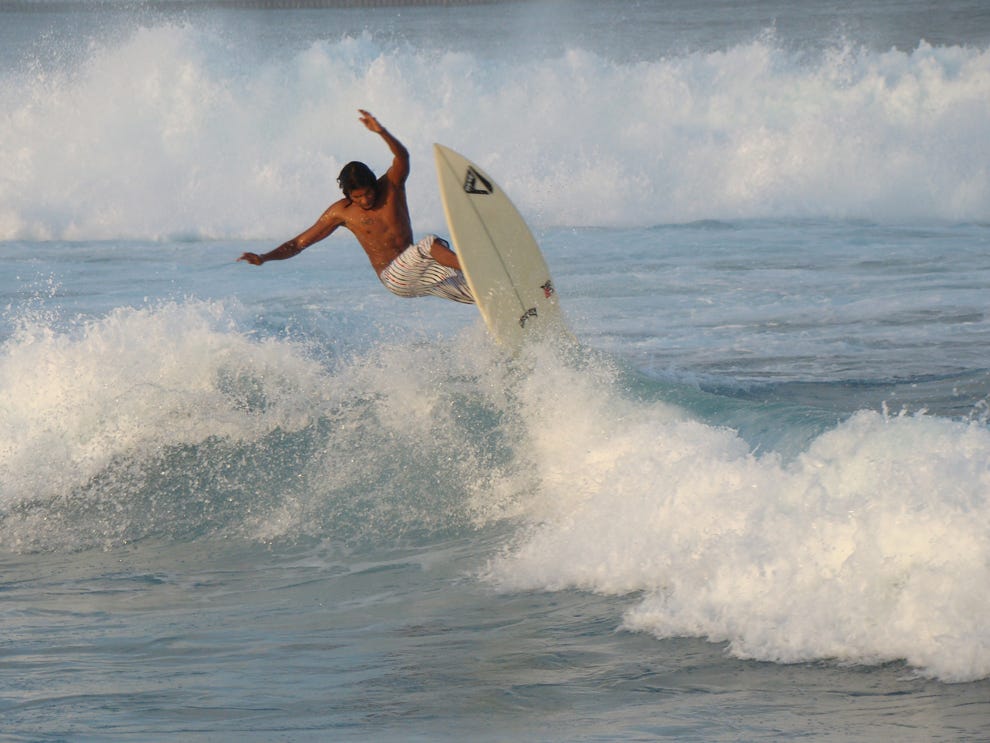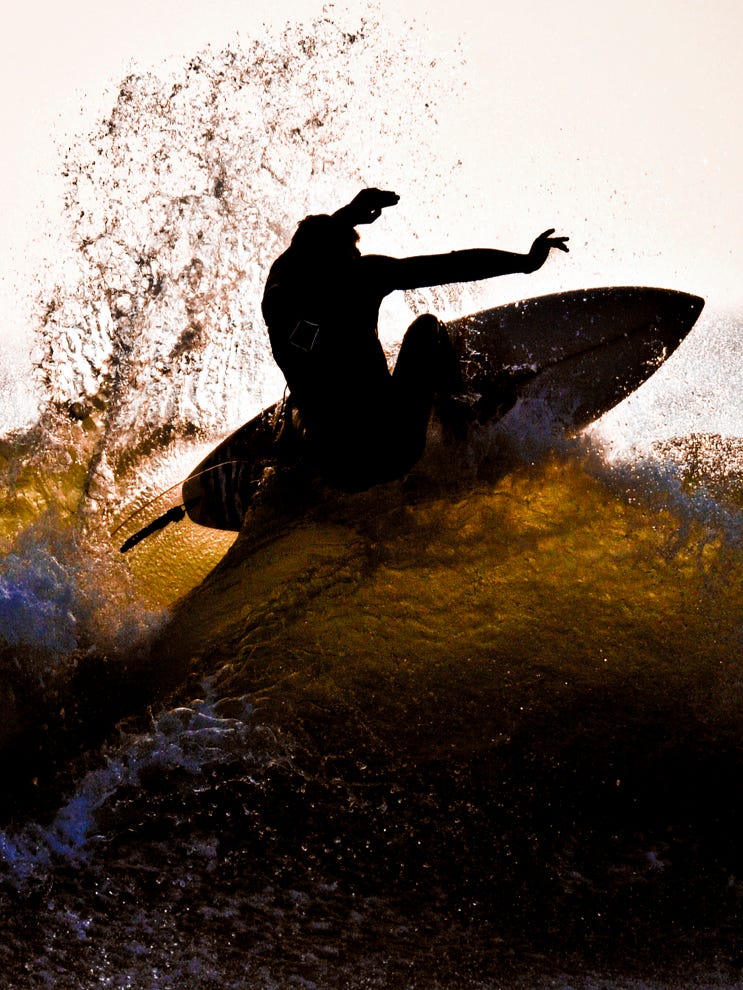Actress Tanna Frederick & Project Save Our Surf
Vietnam Water Clean Water Trip | CAMP PSOS | Camp 'Consurfvation'
By Jordan Schaul | National Geographic | November 19, 2013
- A Conversation w/ Project Save Our Surf’s Co-Founder—Actress & Surfer Tanna Frederick -
Born and raised in Iowa—true thespian—Tanna Frederick—relocated to Hollywood after graduating as the valedictorian of her class at the University of Iowa. She did so double majoring in theater and political science! I think that the scholastic achievement was, at the very least, a hint that the actress had ambitious aspirations in life.
TANNA ARRIVED ON THE WEST COAST READY TO TAKE ON BOTH THE STAGE AND THE FILM CAMERAS AND IN DOING SO HAS BUILT QUITE A RESUME IN FRONT OF THE CURTAIN AND ON SCREEN. THE TALENTED ACTRESS HAS SINCE TAKEN THE INDEPENDENT FILM INDUSTRY BY STORM.
Tanna worked with Henry Jaglom on two plays after getting her feet wet on the LA theater and film scenes and before starring opposite Justin Kirk in Jaglom’s 2006 film Hollywood Dreams. She won multiple Best Actress awards at the Montana Independent Film Festival and the Fargo Film Festival.
Tanna has since tried her hand at directing and producing films, and her first film, in which she will be credited as producer, will be released later this year. Tanna also co-founded the Iowa Independent Film Festival and spearheaded the Iowa filmmaking initiative—Project Cornlight—to honor theater students in her home state.
If all this hasn’t been enough to keep her busy, the avid surfer co-founded the non-profit Project Save Our Surf (PSOS) in 2007 with former professional surfer Shaun Tomson.
PROJECT SAVE OUR SURF IS “DEDICATED TO OCEAN CONSERVATION, IMPROVING THE AVAILABILITY OF FRESH WATER TO THOSE IN NEED AND EXPOSING A WIDE RANGE OF PEOPLE TO THE JOYS OF THE OCEAN THROUGH SURFING.
Interview:
Jordan: Tanna, thank you so much for participating in this inaugural interview on behalf of PSOS, which you co-founded. With all due respect, I’m surprised you have time to enjoy the surf, much less think of the environment in the process! But if recreational surfing is what prompted you to protect marine and freshwater waterways, I’m glad you decided to ride the waves! What inspired you to start the non-profit. Was it something you knew you wanted to do immediately after taking up the surface water sport or was it just something that evolved? Please elaborate.
Tanna: I make time to surf. It is the most calming element I have to turn to in my life. I grew up in a land-locked state, Iowa, where there are oceans of corn but bodies of water are small lakes, ponds, and marshes. When I saw the ocean for the first time, I was seventeen years old and it blew my mind. When I moved to LA, I knew I needed to interact with the ocean in some daily way. I tried sailing, but I get extremely seasick and there wasn’t enough Dramamine to keep me on the boat.
Thus I began surfing. Immediately after the first wave, I knew I was hooked and had become the ocean’s mistress.
It was such an amazing workout, but most importantly so many positive spiritual, mental, and physiological elements entered into all my surfing experiences – I can never get enough. But after surfing for a year, I started to notice how Polluted the water was and how many ear & throat infections I got.
Jordan: I used to surf and sail on freshwater if you know what I mean. Yes, I can windsurf, but I suspect surfing by itself on marine surface water is more challenging. I know surfing has gained much more notoriety as a surface water sport than surfing with a sail, and it is far more competitive than the leisurely act of windsurfing. I have lived near three of the world’s oceans and been submerged in four of them. I’m now back in Southern California, but I know very little about standing-up surfing. In fact, I think it looks exhausting, to be honest. Can you tell us a little about it? For example, what is the difference between longboarding and short boarding? And how do you feel about sharks?
Tanna: I’m a charger, I like hard workouts and competed in swim team as a kid and tae kwon do and marathons in college. Freshwater is lovely and nurturing, but the real-life or death cognitions come from the ocean. It is your friend and foe. It takes, just like TKD, a lot of discipline and a real knowledge of the ocean, the tides. The surface of the ocean is the subtle or not-so-subtle face that you have to learn to read. To me, even after nine years, it still feels like speaking French. You can study and study but until you get into the culture and are immersed in the speech, it’s easy to forget the basics. I haven’t windsurfed but I imagine my arms being ripped off. It seems harder than surfing. The thing about surfing that has been most important in my life is committing, committing to the wave. If there’s a wave with a big face, pop up on the board, ride it, and no looking back. I have chickened out on waves, gotten yelled at by an instructor, and rightly so. It’s like life. Jump in and go with your choices, there’s no vacillating or other surfers are going to kick your ass for not at least trying. Just like my life, if I say I’m going to go forward with something, I’ve learned to go for it and not back off, or someone else is just waiting to ‘hop on my wave’ and work it and I’ve just missed the opportunity and the experience of riding that wave.
The difference between longboarding and shortboarding is finesse. Longboarding is all about riding down the line with ease, poise, and elegance. Getting into shortboards is about maneuvering and quickness. A lot of early surfers, especially men, will take a few lessons and then switch up to a 6 ft board and look like kooks. When I get back into the water after not being in for a while, I take my longboard out to get the basics back, find my center, get my technique back in order, and then I’ll go to my 6’6. But only after I’ve perfected my skills back. But hey, I’m an insane perfectionist. So really, kudos to anyone who gets out.
As to the topic of sharks….Sharks? What sharks? What’s a shark? Hear no evil, see no evil. I love leopard sharks. They gather like a giant swarm of catfish tadpoles during mating season and I freak that my fin is going to cut one of them. You go from surfing in green/blue water to surfing over completely black clouds. They’re beautiful. Bottom feeders and they move like ballerinas.
But big-time sharks-I was going to go and do the shark cage during my last surfing trip in Hawaii, but I reconsidered. The visual would freak me out. I’d rather not see them in full chumming splendor.
I do, however, advocate for their protection. Hunting sharks is sick. The chance that one can get attacked by a shark is the same chance of one getting hit on the head by a random falling airplane fuselage. Also, our overfishing has created new behaviors in the sharks, and they are forced to feed in different ways. That doesn’t mean I want to be a shark sardine, but we need to look at our behaviors and protect the balance of the delicate marine ecosystems.
Jordan: I know a few hardcore surfers, but I don’t know if any of them are particularly aware or cognizant of such an array of issues surrounding the health of aquatic ecosystems. Forgive my naivete, but are surfers pretty well informed when it comes to water quality issues or about marine ecosystems in general? I know some surfing organizations are fond of marine mammals and have organized to preserve them or at least raise awareness about them, but I’m excited to hear more about PSOS’s approach to conservation and the preservation of a wide range of aquatic life and habitats. Can you give us an overview?
Tanna: Well, the genesis of PSOS was a result of surfers. The knowledge I extracted from them regarding every aspect of the ocean including pollution, urban run-off, protection of our resources, and global ocean awareness, were all collected from surfers. They are in the know. They are in the ocean every day, running into trash, feces, chemicals, marine life… I got the rundown on the state of our world’s oceans from my bros/ bras/ mermaids whatever you determine they should be deemed. Because their faces and bodies are in the water every day. They experience wounds from a fin gash to the leg or damage to their ear, nose, and throat due to severely poor water quality as a result of urban runoff. Unless they’re bogus surfers, they are completely aware of the plight of our oceans and their ecosystems and the best and worst places to surf regarding water quality. That’s who I learned from. The surfers are my gurus and the reason I recruited Shaun Tomson and other surfers to be part of our team as eco-warriors for PSOS. Because they know and care. The day of the inception of PSOS was the day I simultaneously saw a used condom floating by my board and then looked at a kids’ surf camp getting suited up to come in the water. The two don’t match. Don’t gel. Whatsoever.
So I’d be shocked if your hardcore surfer friends weren’t acutely aware of all the problems going on in the ocean. Surfers are the silent heroes, or at least my experience with them has left that impression on me. They may not be as vociferous as some activists but nonetheless, they are silently and aggressively protectors of the thing that provides them with joy and serenity.
Jordan: PSOS hosts an annual event, cleverly named Consurfvation Camp. Can you tell our readers what inspired this initiative and what it entails?
Tanna: Consurfvation Camp is part of the outreach program to get kids and families involved in — you guessed it — water conservation. We always had great support from families in the community at PSOS surf events and I’d seen how great surfing was for my friends’ kids. We wanted to bring that experience to kids who may not otherwise have the opportunity.
It’s sort of a traveling camp that makes seven stops through California and Mexico over the course of two months. Each stop has a surf clinic, yoga instruction, a beach cleanup, and of course hands-on lessons in conservation, recycling, and other environmental issues. It goes back to the idea that kids will grow up wanting to protect what they love. But beyond that, we want to expand these kids’ worlds. We want them to see opportunities beyond their daily lives.
Jordan: A primary objective of PSOS is to reduce environmental pollution and create a plastic-free world. How does PSOS make its impact on environmental pollution? Do you primarily focus on plastics or an array of pollutants? What are some of the negative effects of pollutants that you deal with, or at least, those that may be most familiar to surfers?
Tanna: Actually, our primary objective is to reduce environmental pollution all around including the conservation of our ocean through education and outreach to our communities. PSOS strongly believes that involving children at an impressionable age teaching and showing them to respect nature will make a great impact on our future environmental solutions.
One of the negative effects of pollutants is Urban run-off. When it rains, the California sewage is flushed out into the ocean. The water is nasty, green, and smells like cucumber. The plastics get into the water and break down and become part of the ecosystem and other animals ingest them. Turtles think plastic bags are jellyfish and eat them. The five plastic garbage patches are very real. Through our outreach program, we encourage people to use refillable water filters, which can save hundreds of plastic bottles per individual a year…That’s a lot of plastic, and a simple step people can take. Reducing waste in a homestead really is a simple step that helps immensely in what seems like an insurmountable battle against pollution.
We also have beach clean-ups up and down the coast with our teen pro-surfers leading packs of kids and their parents once a month.
Jordan: I’ve studied marine species, but primarily those inhabiting pelagic or open water ecosystems. We often think of open water as rich in biodiversity, but so too is the intertidal zone, sometimes referred to as the littoral zone. Essentially this is the region between tide marks where you could say a lot of wave action and surfing occurs. And beneath the water, there are numerous and important habitats and micro-habitats among the diversity of intertidal ecosystems. What is at stake if we fail to keep our coastal waters clean?
Tanna: If we keep abusing our environment and fail to keep our coastal waters clean the stake is high resulting in not only compromising human health but significantly the existence of wildlife. It also impacts our local economy, if our beaches are dirty and garbage is floating in the water threatens our tourism and recreation.
Jordan: I’m always eager to get celebrities involved in environmental causes. How did you get so many public figures to support your work? I didn’t realize that so many celebs surfed. Do they? I thought they just played surfers on TV.
Tanna: That’s really funny! No, I think most actors WANT to play surfers on TV because most of them do surf and that would be a dream glory project to be able to just surf and film all day! I’m always jealous of Mathew McCaunahey and his surfing movies.
If we’re lucky enough, we get to play surfers. I’m constantly trying to pitch myself for surfing roles. I’ve tried to convince some producers that a guy surfer character could be more advantageous if it was a girl. They kind of all just came out of the woodwork.
A lot of celebs surf. I think when you’ve got such a busy, chaotic life, surfing is a great escape. You just let everything fall away and focus on the next wave. Most of our supporters are friends or friends of friends. As I said, surfers, famous or not, are really aware of the importance of water quality. Since starting PSOS, I’ve been surprised and humbled by the generosity of our supporters. I’ve found that most people really want to help, you just have to ask.
Jordan: If you could pick one conservation project that PSOS is currently working on, or has worked on since its inception what would it be? Feel free to elaborate.
Tanna: There are two future projects I’m stoked about – Our Vietnam Water Clean Water trip and our second youth camp which is called CAMP PSOS.
On February 7th, 2014 I will be traveling with a crew from PSOS to Ben Tre Province Vietnam. PSOS crew will be working with the non-profit origination SOS Children’s Villages Vietnam in Ben Tre Vietnam. Our team will be spending several days in two of the SOS villages in Ben Tre Province, providing clean water for the village and children.
SOS Children’s Villages Vietnam is a child development organization that has been providing a loving home to children at risk since 1987. They enable children who have lost the care of their parents to become again part of a family and to grow up in the most natural way possible. They support these children to become independent, responsible, and contributing members of society.
Our team will be working with two villages and provide fresh water. Each village has 25 to 30 homes. The SOS village in Ben Tre gets its daily water from the milky brown river water. The water from the river is used for drinking, bathing, cooking, and daily needs. The children are at risk with the milky brown contaminated water. Sanitation is a big problem in the village. Several of the children and staff are sick due to the contaminated water. The SOS Villages Vietnam has 15 villages in Vietnam. The Ben Tre village is in desperate need of clean water.
We will be working and visiting the children for 10 days and provide them with the water filters that will allow them to have fresh clean water. We will be installing the 50 water filters for the 2 villages which will provide 1000 people water a day. The water filters if cleaned and taken care of properly will last a long time.
PSOS is looking forward to visiting SOS Children’s Villages Vietnam. PSOS will be working side by side with the staff and children to see what else is needed for the homes and children.
We’re hoping to raise enough money in 2014 to help build a water well for one of the villages.
Holiday event to support PSOS’s Vietnam program (Dec 5th, 2013)
http://www.projectsaveoursurf.org/Donate.php
A note from Tanna: After growing up in landlocked Iowa, I moved to California and fell in love with surfing. I saw the damage done by plastic pollution, the effect that poor water quality had on fellow surfers as well as oceanic life. I wanted to change things for the better and in 2007, founded Project Save Our Surf to do just that. Since then, our mission has evolved. Clean water, whether in the ocean or a well, should never be a luxury. Every 15 seconds a child dies from contaminated water. That’s a statistic I just can’t abide. Last year, PSOS launched its first water filter project, raising money to purchase water filters with the capacity to provide one million gallons of clean water each. One filter can serve 100 people for an entire year.
Our goal was to deliver 25 of these filters to villages, schools, and families in Costa Rica. We worked with CEPIA — a Costa Rican non-profit and non-governmental organization that is dedicated to improving the quality of life of children, teens, and families — to find people in need. Our trip was planned, our mission was clear, but nothing prepared me for actually arriving in Costa Rica.
The country is so beautiful and lush. Since I took up the sport, it’s been a dream of mine to surf in Playa Grande, which is one of the most beautiful spots in the world. But smashed up against this paradise was poverty like I’ve never seen. I soon found that no wave was as rewarding as the smiles of the children we met — they reacted to water bottles and flip flops like it was Christmas morning — and that the beauty of the coast was nothing compared to the joy of people who were now able to provide clean water to their families and communities.
The trip, filled with friends and experiences I’ll never forget, was a reminder of what Project Save Our Surf is about. Clean water isn’t a privilege, it’s a right. We returned to the US, exhausted and somehow renewed, ready to continue the fight.”
Dr. Jordan Carlton Schaul is a zoologist, conservationist, journalist, and animal trainer based in Los Angeles, California. To follow his posts for National Geographic, please visit this page.
ABOUT NATIONAL GEOGRAPHIC SOCIETY
The National Geographic Society is a global nonprofit organization that uses the power of science, exploration, education and storytelling to illuminate and protect the wonder of our world. Since 1888, National Geographic has pushed the boundaries of exploration, investing in bold people and transformative ideas, providing more than 14,000 grants for work across all seven continents, reaching 3 million students each year through education offerings, and engaging audiences around the globe through signature experiences, stories and content. To learn more, visit www.nationalgeographic.org or follow us on Instagram, Twitter and Facebook.
MEET THE AUTHOR
Jordan Carlton Schaul With training in wildlife ecology, conservation medicine and comparative psychology, Dr. Schaul's contributions to Nat Geo Voices have covered a range of environmental and social topics. He draws particular attention to the plight of imperiled species highlighting issues at the juncture or nexus of sorta situ wildlife conservation and applied animal welfare. Sorta situ conservation practices are comprised of scientific management and stewardship of animal populations ex-situ (in captivity / 'in human care') and in situ (free-ranging / 'in nature'). He also has a background in behavior management and training of companion animals and captive wildlife, as well as conservation marketing and digital publicity. Jordan has shared interviews with colleagues and public figures, as well as editorial news content. In addition, he has posted narratives describing his own work, which include the following examples: • Restoration of wood bison to the Interior of Alaska while (While Animal Curator at Alaska Wildlife Conservation Center and courtesy professor at the University of Alaska) • Rehabilitation of orphaned sloth bears exploited for tourists in South Asia (While executive consultant 'in-residence' at the Agra Bear Rescue Center managed by Wildlife SOS) • Censusing small wild cat (e.g. ocelot and margay) populations in the montane cloud forests of Costa Rica for popular publications with 'The Cat Whisperer' Mieshelle Nagelschneider • Evaluating the impact of ecotourism on marine mammal population stability and welfare off the coast of Mexico's Sea of Cortez (With Boston University's marine science program) Jordan was a director on boards of non-profit wildlife conservation organizations serving nations in Africa, North and South America and Southeast Asia. He is also a consultant to a human-wildlife conflict mitigation organization in the Pacific Northwest. Following animal curatorships in Alaska and California, he served as a charter board member of a zoo advocacy and outreach organization and later as its executive director. Jordan was a member of the Communication and Education Commission of the International Union for the Conservation of Nature (CEC-IUCN) and the Bear Specialist Group of the IUCN Species Survival Commission (BSG-SSC-IUCN). He has served on the advisory council of the National Wildlife Humane Society and in service to the Bear Taxon Advisory Group of the Association of Zoos and Aquariums (AZA Bear TAG). In addition, he was an ex officio member of the council of the International Association for Bear Research and Management.



